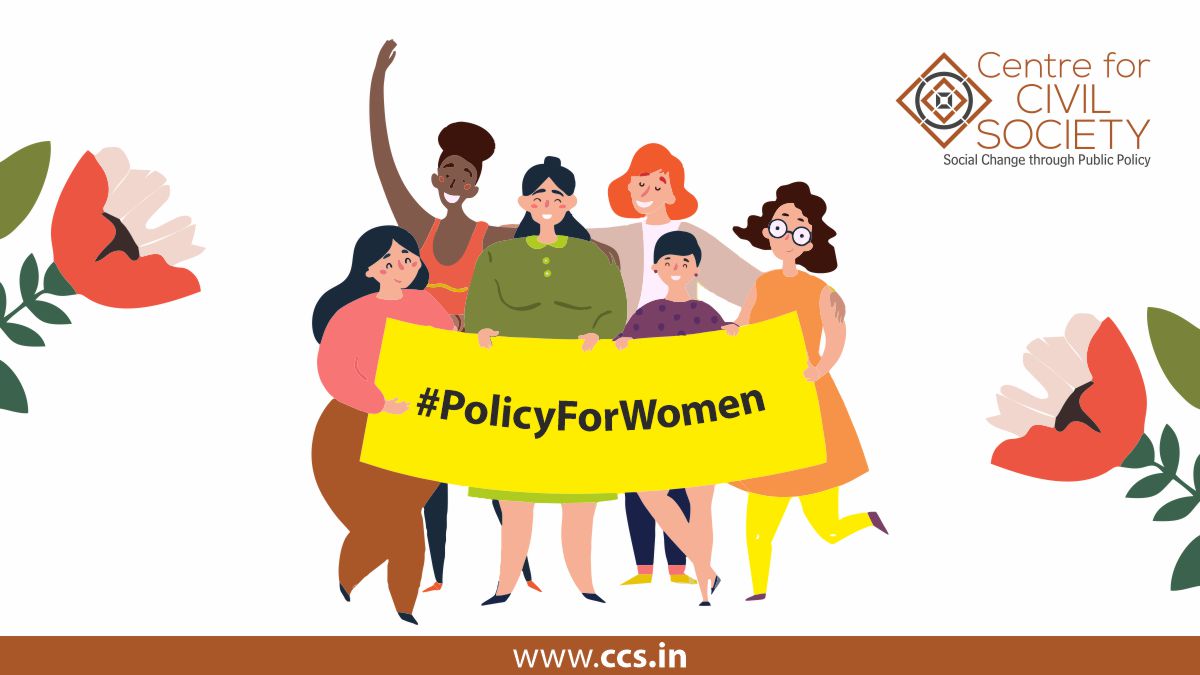On International Women’s Day 2021, CCS brings to you a compilation of our latest work focussing on #PolicyForWomen. Through these articles and videos, we aimed to highlight various gender issues plaguing India’s public policy. From understanding the pandemic’s effects on women to amplifying the voice of female entrepreneurs, over the last one year, we delved into a range of women’s issues and the policies that attempt to tackle them.
Some articles from our board members, alumni, and team members:
This article talks about the foundation for ensuring the large participation of women in the field of STEM in India and how there is a lot of work to be done still.
This article talks about the gender data gap created by the lack of data on women and girls that often makes gender-specific policies turn gender-blind.
This article talks about the Ekal Mahila Sanghatana, a single women’s party that’s leading women empowerment in a village in Maharashtra.
This article talks about the work from home culture that the Covid-19 pandemic has put in place and how it can benefit female employment rates in India.
In this case study from Delhi, we see how laws alone are insufficient to tackle gender-based violence.
In this article, we explore the possibility of women bearing the brunt of the Covid-19 crisis, the consequences of which could be long-lasting.
This article explores how far India has come in its efforts to tackle maternal mortality with more than two decades of committed safe motherhood programs.
In this article, we take a look at how domestic violence during the lockdown in India is a pandemic within a pandemic.
This article looks into how a direct cash transfer scheme has made maternal healthcare more accessible, especially for those who need it the most.
Here are some of our videos on #PolicyForWomen:
This video showcases the impact of CCS’s ‘Bamboo is not a Tree’ campaign on the life of Rekha Dey, a bamboo entrepreneur.
In this monologue, activist Shailaja Laxmikant Deshpande talks about Sharad Joshi’s contribution to advancing women’s property rights.
In this video, Ms. Pradnya Bapat of Yavatmal district of Maharashtra describes the problems faced by women farmers in India.
This video makes a case for Direct Cash Transfers to improve access to quality healthcare for all Indians, with a focus on maternal health. Health and Nutrition, (Including Angwanwadi)
Post Disclaimer
The opinions expressed in this essay are those of the authors. They do not purport to reflect the opinions or views of CCS.





